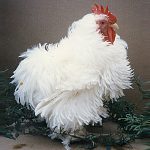
Frizzle chickens are fun and funny, but are they a breed? The answer is yes and no. In Australia, France, Germany, Ireland, Italy, and United Kingdom Frizzles are classified as a pure breed. In the United States they are considered to be a plumage variety in any breed. Frizzle Chickens Frizzling is a genetic condition […]
Continue Reading
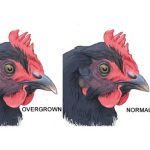
In a natural environment, a chicken’s beak wears down as fast as it grows. Periodically a chicken wipes its beak on the ground to clean it. The maneuver at the same time sharpens the beak for pecking and keeps it from growing too long. The upper half of a chicken’s beak is naturally a […]
Continue Reading
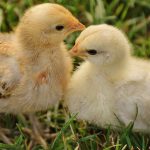
The COVID-19 pandemic has triggered a run on chickens, causing people to ponder the age-old question: Which came first, the chicken or the egg? The Columbia Missourian votes for eggs: “Panic-buying the eggs came before panic-buying the chickens this year, though people have been doing both.” But Newsweek opts for chickens, saying, “Many […]
Continue Reading

Geese are not particularly prolific layers, as poultry go. The top producers might lay about four dozen eggs per year, which gives goose eggs their high value. The large white eggs are most often hatched to raise goslings for holiday roast goose. The eggs are also prized for creating craft items such as decorative […]
Continue Reading

Bumblefoot describes a chicken’s inflamed foot with a hard, swollen abscess in the foot pad. The word bumble originally referred to the affected chicken’s unsteady gait caused by the swelling. In recent times, the core of the abscess, or the abscess itself, has been referred to as a bumble. The abscess may start out […]
Continue Reading

Buying a ready-made chicken coop, instead of building one yourself, has several advantages. It doesn’t require any carpentry tools or skills. It doesn’t take up several weekends of your free time to put together. And you don’t need a PhD in all the features a chicken coop needs. But you should know enough about how […]
Continue Reading
Cackle Hatchery offers customers a diverse range of chickens to choose from, so you can find the right backyard chickens for your needs. If you are looking specifically for pet chickens and you are new to raising chickens, here is a handy guide to help you find the perfect fit and tips on how to […]
Continue Reading

Gobble, gobble! Thanksgiving is tomorrow, which means we’re talking turkey! If you’re one of the many Americans who will be gathering around the table with distant relatives who come around just a few times each year, you know that conversation doesn’t always flow easily. Looking to avoid topics such as politics, your love life, […]
Continue Reading
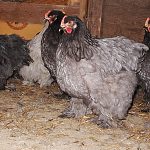
Ammonia is a pungent-smelling gas constantly released by bacteria that decompose chicken droppings. Not only does ammonia smell bad, it’s also a health hazard for you and your chickens. High levels of ammonia in the coop’s air can discourage chickens from eating—affecting the growth rate of young birds and the production of laying hens—and can […]
Continue Reading
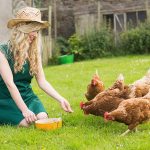
Training your chickens to come when you call them can be handy in a number of situations. You might use the training to gather your flock into the coop when you are ready to close it up for the night. You could call free range chickens together to protect them from a roaming dog or […]
Continue Reading









